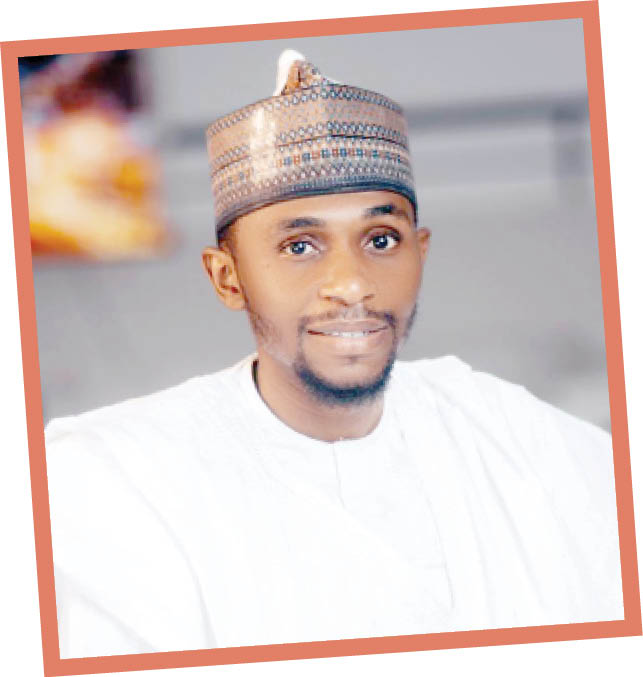Naufal Ahmad is the Director General of the Katsina Directorate of Information and Communications Technology (KATDICT). In this interview, he shares his journey from a grassroots advocator to his passion for youth inclusion as well as the challenges of building a digital ecosystem and his aspiration for the future of Katsina’s young generation.
What does it mean to be the youngest DG of KATDICT?
I am an ecosystem builder with a deep commitment to youth empowerment. Before I joined the government, I co-founded the first technology hub in Katsina State. Some years back, I worked closely with young people—teaching them valuable skills and helping them transform those skills into thriving startups. My transition into government was a continuation of my mission to serve and create value, but now on a broader scale. At KATDICT, our goal is to help the government deliver better services through technology, making processes more efficient, cutting costs, and ultimately improving the lives of our citizens.
My roots in a vision of using technology as a tool to empower people, led me to become the DG, especially during mentoring the youth, and bridging the gap between government and citizens. My leadership at KATDICT reflects a modern, results-driven approach that positions technology at the heart of governance.
- ICPC boss visits late Justice Ayoola’s home in Ibadan
- Students seek review of FG’s 18-year admission eligibility
What inspired you to advocate for political and economic inclusion for young people in Nigeria?
My family has always been involved in serving the community and standing up against injustices. I grew up questioning the status quo and felt a strong urge to challenge systems that marginalise young people. It became clear to me that while the youth make up the majority in Nigeria, we were nowhere to be found in leadership or decision-making roles. I, along with other young advocates, felt it was time to change that narrative. We organized, mobilized, and pushed for the #NotTooYoungToRun movement, which ultimately became law. This policy change opened up new doors for youth participation in governance, not just in Nigeria but across Africa.
Through those years of activism, I also realised that without economic power, our political gains would be limited. That’s what drove me to establish a tech hub focused on skills development and entrepreneurship. Thousands of young people have since benefitted from our programmes, gaining the tools they need to create jobs and build sustainable businesses.
What’s your vision for Katsina’s youth over the next four years?
Young people aren’t the leaders of some distant tomorrow, we are the leaders of today. We’re stepping out of the shadows and refusing to be sidelined. Governments are beginning to realise the immense value that young people bring to the table. Governor Dikko Radda is a prime example of a leader who recognises this. His administration has prioritised inclusivity. By integrating youth into decision-making processes, we’re able to create more innovative solutions to old problems.
My vision for the next four years is to continue building platforms where young people can take ownership of their ideas and lead in implementing transformative initiatives. We’re focused on nurturing a culture of innovation and entrepreneurship that will make Katsina a model for youth-lead development in Nigeria.
My approach highlights the importance of youth involvement not only as participants but as co-creators in the process of governance and development.
There’s a misconception in Northern Nigeria that ICT is a male-dominated field. How are you addressing gender equity in ICT in Katsina?
The tech landscape in Northern Nigeria is rapidly evolving, and we have a growing number of startups and innovators. However, for this ecosystem to reach its full potential, it has to be inclusive. I’ve always been a strong advocate for gender equity, not just as a moral obligation but as an economic imperative. At the hub I co-founded, we made it a rule that women occupy 60% of all available slots in our programmes. This policy was designed to maximise women’s participation in our growth.
Including women in tech is not just about checking a box, it’s about realising the untapped potential they bring.
Women’s perspectives and talents are critical for building a thriving, balanced ecosystem. In Katsina, we’re creating environments where women and girls feel encouraged and supported to pursue careers in ICT. From mentorship programmes to targeted training sessions, we’re actively working to dismantle the barriers that have traditionally held them back.
What challenges do you face in advancing ICT in Katsina, and how are you tackling them?
Katsina is a conservative society, which presents unique challenges when it comes to driving ICT adoption. Despite these challenges, the growth of the ICT sector in both government and the private sectors has been remarkable. Who would have thought a few years ago that Katsina would establish an agency like KATDICT, fully committed to digital transformation?
We’re now leading initiatives that streamline government processes, improve service delivery, and make governance more efficient.
Of course, there are obstacles, cultural resistance, limited infrastructure, and the need for more investment. But those challenges are not insurmountable. We’re taking a community-driven approach, working closely with traditional leaders, civil society and the private sector to build trust and demonstrate the tangible benefits of technology.
Any impact, whether it’s faster access to services or more job opportunities, they become more open to embracing these changes. Therefore, my strategy emphasises the importance of balancing innovation with cultural sensitivity while driving progress.
What message would you share with young Nigerians struggling to find employment after graduation?
Success is rarely easy, but it’s always achievable if you stay focused and committed. Instead of being discouraged by obstacles, look for ways to turn challenges into opportunities. Be part of the solution rather than the problem. Pick something you’re passionate about, commit to it, and pursue it with excellence. It won’t be easy, but with perseverance, success is inevitable.
Employment is just one pathway, there are many ways to create value. I encourage young people to explore entrepreneurship, freelancing, or even learning new skills that align with the demands of today’s digital economy. The world is changing fast, and those who adapt will thrive.
My advice speaks to the resilience and adaptability needed to navigate today’s challenging job market while encouraging young people to think beyond conventional career paths.

 Join Daily Trust WhatsApp Community For Quick Access To News and Happenings Around You.
Join Daily Trust WhatsApp Community For Quick Access To News and Happenings Around You.

